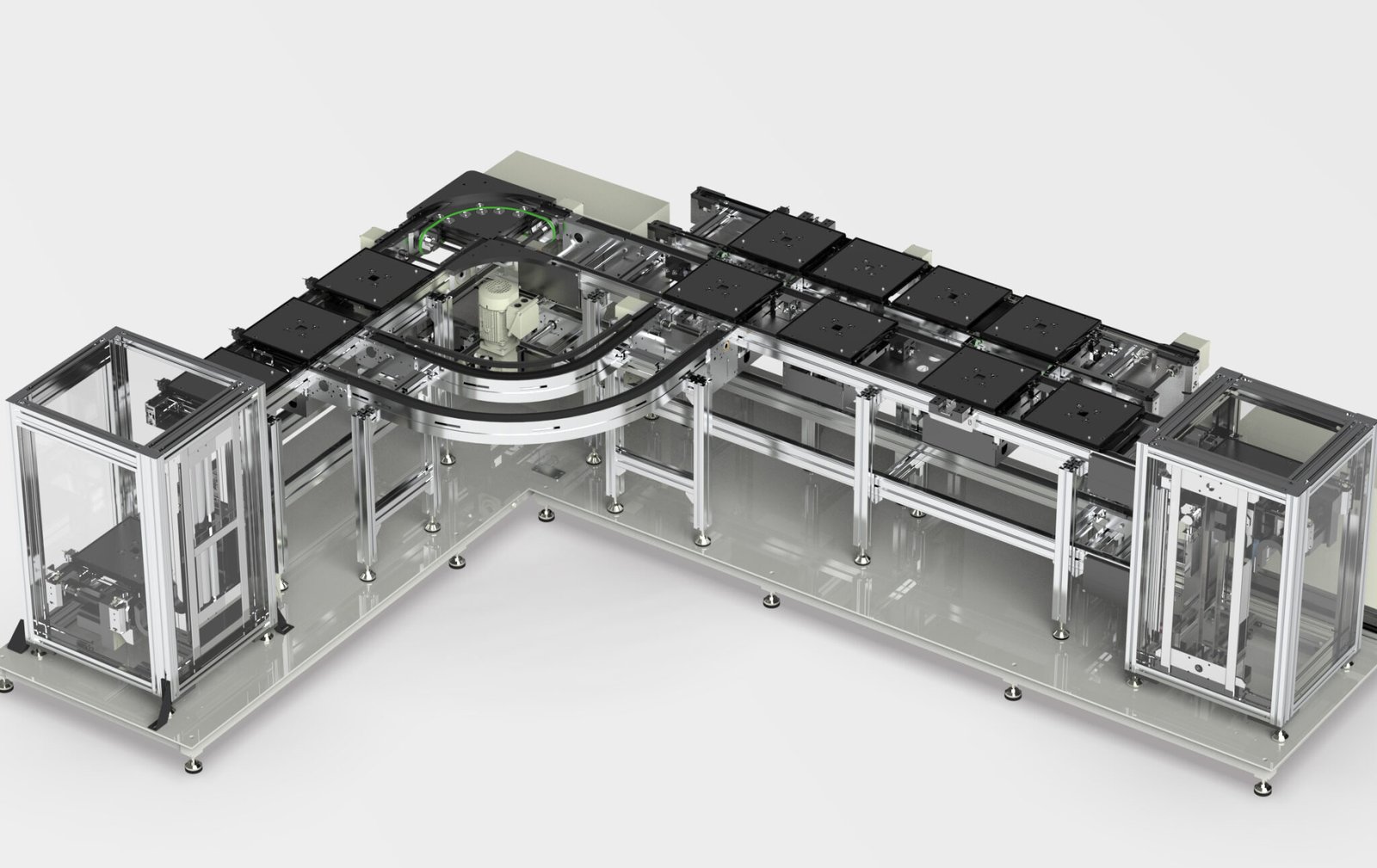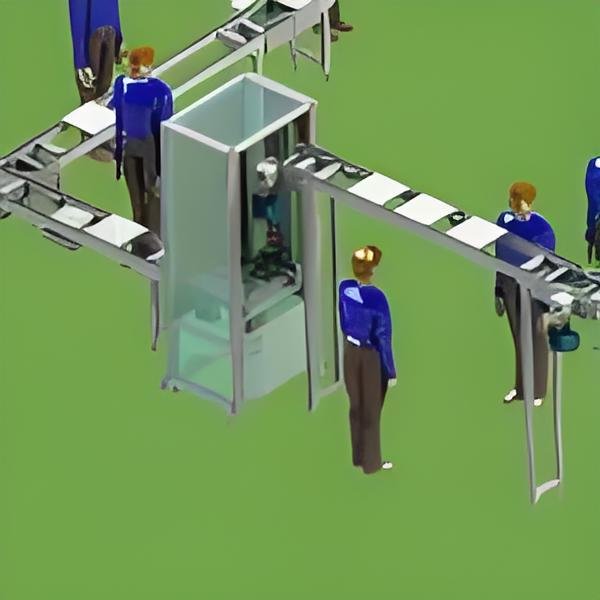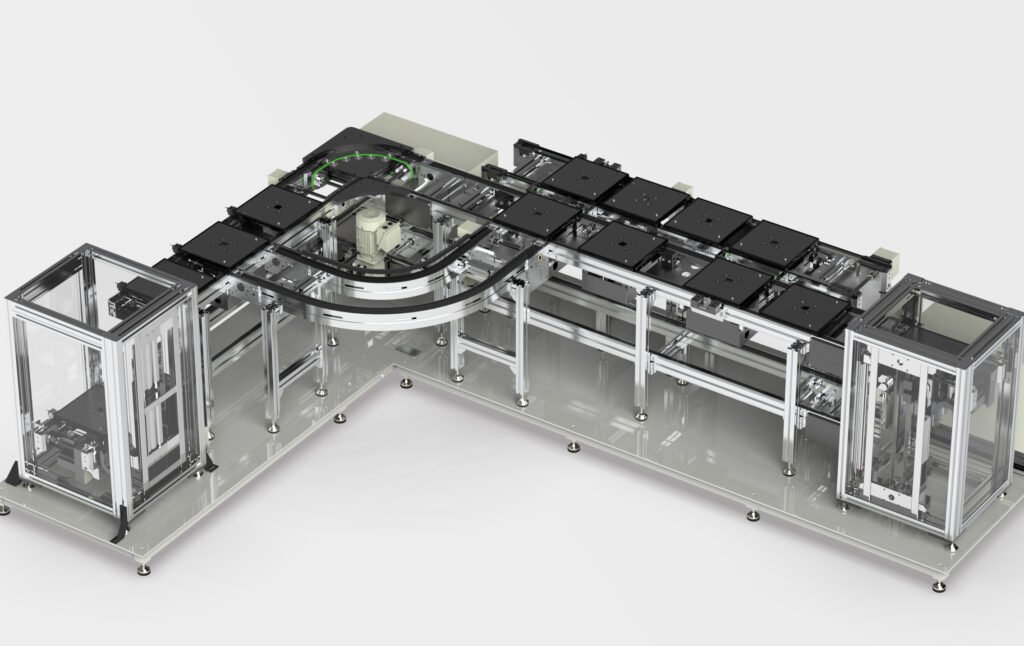Transport de matériaux de précision dans la fabrication intelligente
Dans le contexte actuel d'évolution rapide et de forte concurrence du marché, l'industrie manufacturière subit de profondes transformations. Caractéristique de la fabrication moderne, la fabrication intelligente intègre des technologies de l'information, des technologies d'automatisation et des technologies de fabrication avancées afin d'améliorer l'efficacité de la production et la qualité des produits. Au sein du système de fabrication intelligente, la précision du transport des matériaux joue un rôle crucial, influençant l'efficacité opérationnelle, le contrôle des coûts et la qualité des produits des lignes de production.
Le rôle du transport des matériaux dans la fabrication
Le transport des matériaux est l'un des éléments fondamentaux du processus de fabrication. Il couvre l'ensemble du processus de circulation des matières premières, des composants et des produits finis à différents stades de la chaîne de production. Dans les modèles de fabrication traditionnels, le transport des matériaux est généralement effectué manuellement, ce qui est inefficace et source d'erreurs. Avec les progrès technologiques, les systèmes automatisés de transport des matériaux se sont progressivement généralisés. Ils permettent non seulement d'améliorer considérablement l'efficacité de la production, mais aussi de réduire l'intensité du travail manuel.
Le concept et les caractéristiques du transport de matériaux de précision
Le transport de matériaux de précision, comme son nom l'indique, désigne le processus consistant à acheminer les bons matériaux au bon endroit, de la bonne manière et au bon moment. Ce processus met l'accent sur les caractéristiques suivantes :
- Précision: Veiller à ce que le lieu et l'heure d'acheminement de chaque type de matériel soient conformes au plan de production.
- Flexibilité: La capacité d'adapter à tout moment les stratégies d'acheminement des matériaux en fonction des besoins de la production.
- Fiabilité: Fonctionnement stable du système, le processus d'acheminement n'étant pas perturbé par des facteurs externes.
- Traçabilité: Le système peut enregistrer et suivre l'état du transport et le parcours des matériaux en temps réel.
La demande de transport de matériaux de précision dans la fabrication intelligente
Avec la popularisation de la fabrication intelligente, la demande de flexibilité et de personnalisation des lignes de production a augmenté, ce qui rend l'importance du transport de matériaux de précision encore plus grande. La fabrication intelligente exige que les systèmes de production soient hautement automatisés et collaboratifs. Les systèmes de transport de matériaux doivent donc pouvoir répondre aux instructions de production en temps réel et ajuster avec souplesse les plans de transport de matériaux afin de prendre en charge les changements rapides dans les tâches de production et les réponses aux commandes.
La mise en œuvre d'une technologie de transport de matériaux de précision
Pour assurer la précision du transport des matériaux, l'industrie manufacturière adopte généralement les mesures techniques suivantes :
- Équipement de transport automatisé: L'utilisation d'équipements tels que les bandes transporteuses, les véhicules à guidage automatique (AGV) et les robots mobiles autonomes (AMR) pour améliorer la vitesse et la précision de l'acheminement des matériaux.
- Systèmes d'entreposage intelligents: L'application de la technologie de l'Internet des objets (IoT) dans la gestion des entrepôts pour réaliser le prélèvement, le tri et le transport automatiques des matériaux.
- Systèmes d'information: L'utilisation de systèmes tels que la planification des ressources de l'entreprise (ERP) et les systèmes d'exécution de la fabrication (MES) pour le suivi en temps réel et l'ajustement dynamique des plans de production et des besoins en matériaux.
- Technologie des capteurs: L'utilisation de technologies telles que l'identification par radiofréquence (RFID) et les codes-barres permet de contrôler en temps réel et d'enregistrer les données relatives à l'emplacement, à la quantité et à l'état des matériaux.
Les avantages d'un transport de matériaux de précision
La précision du transport des matériaux apporte de multiples avantages à la fabrication intelligente :
- Amélioration de l'efficacité de la production: Réduit le temps de chargement/déchargement et le temps d'attente, et améliore la capacité de fonctionnement continu de la ligne de production.
- Réduction des coûts de production: Diminution des stocks en souffrance et des déchets de matières premières, tout en réduisant les coûts de main-d'œuvre.
- Amélioration de la qualité des produits: Permet d'obtenir une production de haute qualité en contrôlant strictement l'acheminement des matériaux dans chaque processus, réduisant ainsi le taux de défauts.
- Une réactivité renforcée: Peut réagir rapidement aux changements du marché et répondre aux besoins des clients en matière de production personnalisée et flexible.
Défis et perspectives
Bien que le transport de matériaux de précision puisse apporter de nombreux avantages à la fabrication intelligente, il est également confronté à certains défis lors de sa mise en œuvre. Par exemple, la complexité de l'intégration des systèmes, la rapidité des mises à jour technologiques et les coûts d'investissement initiaux élevés. En outre, les différents secteurs industriels ont des besoins spécifiques différents en matière de transport de matériaux, ce qui nécessite des solutions personnalisées basées sur des circonstances spécifiques.
À l'avenir, avec le développement de technologies telles que l'intelligence artificielle, la communication 5G et l'analyse de données massives, le transport de matériaux de précision jouera un rôle plus important dans la fabrication intelligente. À l'avenir, des systèmes de transport de matériaux plus intelligents et plus flexibles seront développés et appliqués, apportant un soutien solide à la transformation et à la mise à niveau de l'industrie manufacturière.
En conclusion, on ne peut ignorer l'importance de la précision du transport des matériaux dans la fabrication intelligente. En optimisant continuellement les systèmes de transport des matériaux, les entreprises manufacturières peuvent acquérir une position avantageuse dans la concurrence féroce du marché et parvenir à un développement durable.




